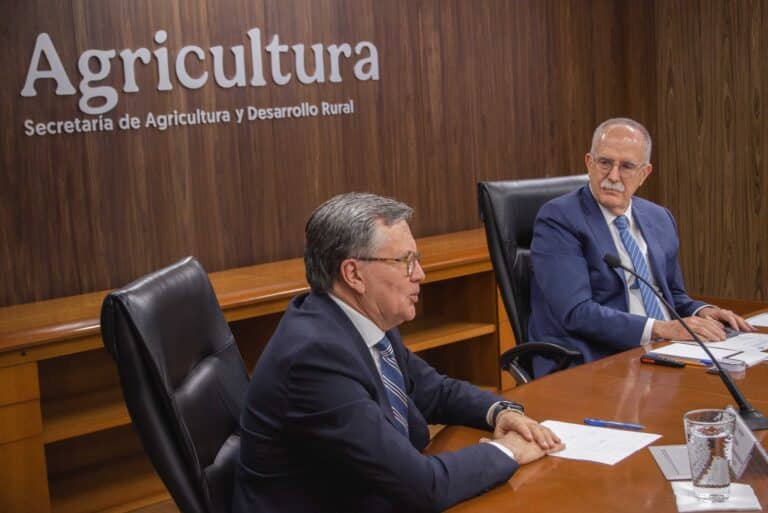An IICA study suggests that in Latin America, the agricultural insurance industry could use a public-private model to promote its development. • The Institute is implementing initiatives to improve agricultural risk management systems.
San Jose, Costa Rica, May 2013 (IICA). Agricultural insurance coverage in Latin America and the Caribbean is growing in countries that have promoted a combined public-private model, and in which agriculture is important in economic and social terms.
That is one of the conclusions of the study Agricultural insurance in the Americas: a risk-management tool, conducted by specialists of the Inter-American Institute for Cooperation on Agriculture (IICA) and the Latin American Association for the Development of Agricultural Insurance (ALASA), which was published recently.
According to the research, 75% of governments in Latin America and the Caribbean attach “high” or “very high” importance to the issue of risk management, even though the region represents only 3.5% of all agricultural insurance premiums written in 2009 worldwide.

“The strong interest in this issue is mostly due to climate change and the negative impact it can have on agriculture. On the other hand, the sector’s vulnerability is what deters insurers; hence the need for the State to be involved under joint public-private arrangements,” commented Marcelo Núñez, IICA Agribusiness and Commercialization Specialist and one of the authors of the study.
He explained that such an arrangement (with the involvement of the State) would ensure stability, with governments providing important resources and inputs (for example, sectoral and weather information), and the private sector contributing know-how and assuming all or part of the risks within a stable framework, with clear and permanent game rules.
IICA has implemented a number of projects in the countries of the hemisphere to promote more risk management and encourage public-private partnerships, especially the project being carried out with the Inter-American Federation of Insurance Companies (FIDES) and the World Bank, aimed at equipping Latin American and Caribbean professionals to design, implement and implement agricultural insurance systems.
That initiative includes the creation of a Virtual Chair of the Americas in Risk Management and Agricultural Insurance involving insurance companies and academic institutions, with the support of international technical cooperation agencies like IICA.
A network of experts will be established to support the chair, to facilitate and promote more effective public-private partnerships, adapt legal frameworks, evaluate the effects of climate change, create insurance programs, and educate producers on the importance of managing risk.
Regional analysis
The IICA-ALASA study notes that a high percentage of the area planted with crops in the Southern Region is insured (65% in Argentina and 60% in Uruguay). The insurance market in that region is competitive, with 28 companies operating in Argentina and 20 more in the other nations.
The market generally operates without subsidies, although Argentina has implemented some provincial programs that include financial assistance for smallholders.
In Brazil, nine percent of the area planted with crops is insured. The country has programs that subsidize the value of premiums and an emergency fund linked to insurance, underpinned by a powerful information system. In Chile and Paraguay, the figures for the amount of cropland insured are 15% and 28%, respectively.
In the Andean Region, agricultural insurance coverage is low–only one percent of the area planted with crops is insured–and there are fewer than 10 insurance companies.
Bolivia, Colombia, Ecuador, and Peru have government-backed agricultural insurance programs for small-scale producers that in most cases subsidize between 60-100% of the cost of premiums.
The report adds that there are federal insurance programs in the Northern Region that provide strong financial and technical support. Mexico is an example of a country in which public-private partnerships have facilitated the development of the insurance industry.
The country has legal frameworks and other policy instruments under which the public sector offers subsidies to people taking out insurance, has set up funds to complement the coverage offered by insurance companies, and acts as a direct insurer and reinsurer.
Despite being highly vulnerable to natural phenomena, the Central Region has a very small agricultural insurance market (two percent of cropland is insured in Honduras, one-and-a-half percent in Nicaragua, and one percent in Guatemala).
The report goes on to explain that in the last year the governments have implemented national programs for small-scale producers, but so far there has been little change in the situation.
The Caribbean is another region that is vulnerable to natural disasters, as it is situated in the Atlantic Hurricane Belt. However, in 2011, less than 10% of the population said they used insurance as a means to cope with emergencies.
“It is important that governments view their contribution to agricultural insurance as a way of reducing the cost of responding to natural disasters,” Núñez remarked.
The authors of the study were David Hatch, Marcelo Núñez, Fernando Vila, and Kervin Stephenson.
For more information, contact:
marcelo.nunez@iica.int
david.hatch@iica.int











